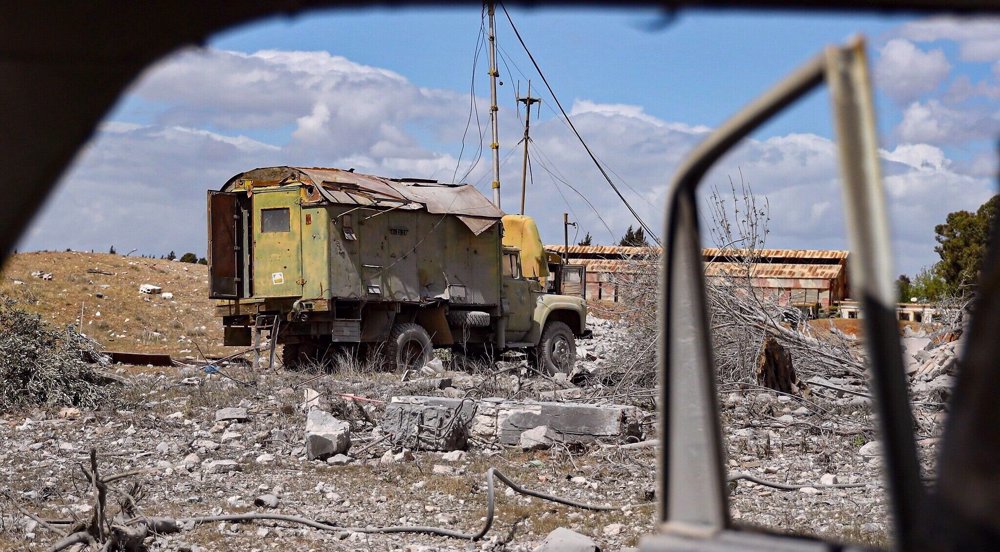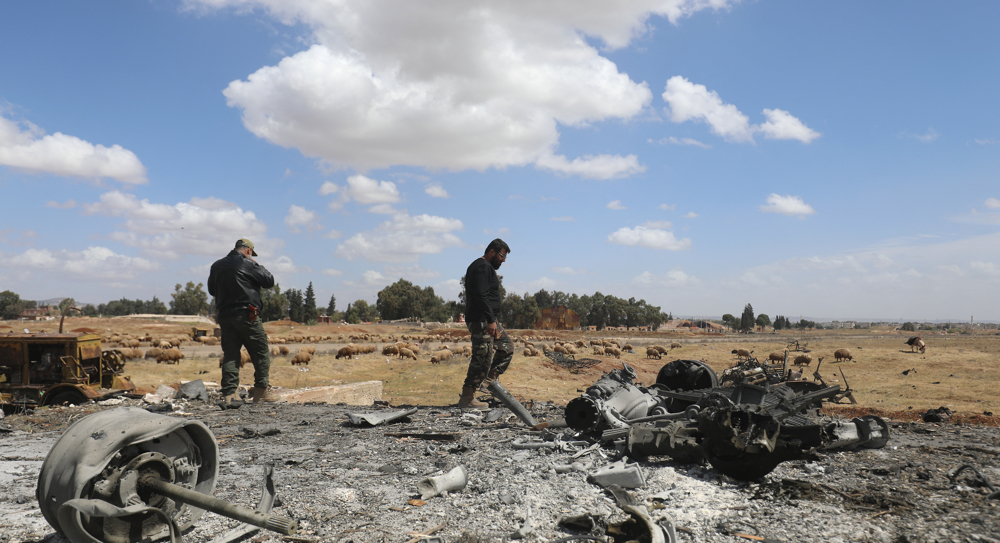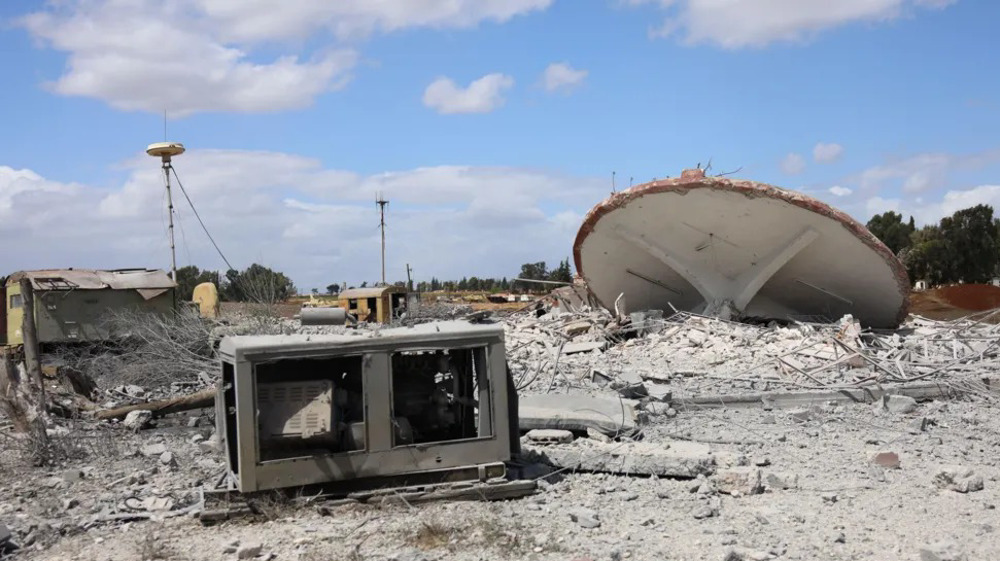Russia warns of false flag chemical attack in Syria's Idlib
Russia has once again warned that al-Qaeda-inspired terrorists and the Western-backed White Helmets "aid" group are gearing up for a false flag chemical attack in Syria's Idlib Province, the last major militant stronghold in the Arab state.
Maria Zakharova, the Russian Foreign Ministry spokeswoman, said Thursday that terrorists with the Jabhat Fatah al-Sham, better known as al-Nusra Front, "along with the White Helmets, are preparing for further provocations aimed at accusing the legitimate government in Syria of using poisonous substances.”
Idlib, located in northwestern Syria, remains the only large area in the hands of anti-Damascus militants after government forces -- backed by Iran and Russia -- managed to undo militant gains across the country and bring back almost all of Syrian soil under government control.
Around 90,000 militants are estimated to be holed up in Idlib, which has a population of some three million.
Last September, Russia and Turkey, a backer of a number of militant groups in Syria, inked a buffer zone agreement in Idlib, which put on hold a massive government liberation operation in the region, situated near the Turkish border.
However, a few months later, the so-called Hayat Tahrir al-Sham -- a Takfiri militant alliance dominated by al-Nusra Front terrorists -- swept through towns and villages in Idlib Province.
Moscow has, on numerous occasions, warned of a false flag chemical attack in Idlib, which would give the US and its allies a pretext to launch a military attack against Syrian government positions.
Russia views the so-called White Helmets as a branch of Jabhat Fateh al-Sham operating under the guise of an aid group.
The Russia-based Study of Democracy Foundation Maxim Grigoriev submitted a report to the UN last December, offering evidence of the White Helmets being engaged in organ trafficking, terrorist logistics support and looting in Syria.
Over the past years, Western governments and their allies have repeatedly pointed the finger at Damascus whenever an apparent chemical attack takes place in the country.
In April 2018, the United States, Britain and France carried out a string of missile airstrikes against Syria over a suspected chemical attack against the Syrian town of Douma.
Syria surrendered its stockpiles of chemical weapons in 2013 and has constantly rejected such claims, which have usually surfaced when foreign-backed militants are about to take stinging blows on the battleground against government forces.
Many observers say Idlib is where the foreign-sponsored militancy in Syria will come to an end.
Iran, Russia and Turkey -- which have been mediating a diplomatic process on Syria since early 2017 -- are set to discuss the Idlib deal during a fresh round of talks on April 25-26 in Kazakhstan.
Delegations from Syria and armed opposition groups are also expected to participate, according to the Kazakh Foreign Ministry.
Iran's Foreign Minister Mohammad Javad Zarif this week visited Damascus and met Turkish President Recep Tayyip Erdogan in Ankara for talks on a range of issues, including the situation in Idlib.

Israel claims it destroyed former military site in southern Syria

Britain urges Israel to respect Syria’s borders, prioritize diplomacy

Israeli warplanes carry out more airstrikes near Damascus
Bill to seize mosques in India gains presidential assent
Over 600,000 children in Gaza at risk of ‘permanent paralysis’: Ministry
Yemen accuses US of targeting civilians in Eid airstrike
VIDEO | US bombing campaign fails to deter Yemen
Hamas calls for mass participation in general strike in West Bank
Europe standing on wrong side of history by appeasing Israel: Iran
Israel plans to cut off Rafah from rest of Gaza by establishing new corridor
Araghchi says no round of talks held between Iran and US









 This makes it easy to access the Press TV website
This makes it easy to access the Press TV website